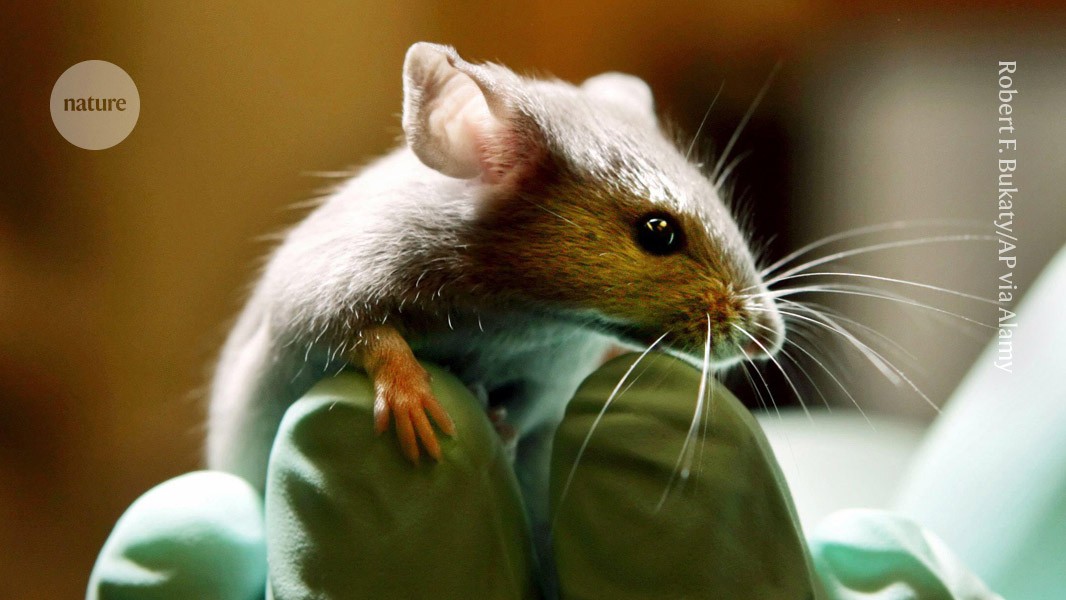
Scientists edit the genes of gut bacteria in living mice
- Select a language for the TTS:
- UK English Female
- UK English Male
- US English Female
- US English Male
- Australian Female
- Australian Male
- Language selected: (auto detect) - EN
Play all audios:
NEWS 10 July 2024 Correction 12 July 2024 Scientists edit the genes of gut bacteria in living mice A ‘base editor’ successfully modified a gene in more than 90% of Escherichia coli bacteria
without unwanted side effects. By Gemma Conroy Gemma Conroy View author publications You can also search for this author in PubMed Google Scholar
Twitter Facebook Email Access through your institution Buy or subscribe Scientists have designed a gene-editing tool that can modify bacterial populations in the gut microbiome of living
mice1.
Access options Access through your institution Additional access options: Log in Learn about institutional subscriptions Read our FAQs Contact customer supportNature 631, 720-721 (2024)
doi: https://doi.org/10.1038/d41586-024-02238-3
Updates & Corrections Correction 12 July 2024: A previous version of this story incorrectly described the effect of the base editor in the bacteria.
References Brödel, A. K. et al. Nature https://doi.org/10.1038/s41586-024-07681-w (2024).
Article Google Scholar
Gencay, Y. M. et al. Nature Biotechnol. 42, 265–274 (2024).
Article PubMed Google Scholar
Lam, K. N. et al. Cell Rep. 37, 109930 (2021).
Article PubMed Google Scholar
Selle, K. et al. mBio 11, e00019-20 (2020).
PubMed Google Scholar
Download references
Reprints and permissions
Related Articles CRISPR 2.0: a new wave of gene editors heads for clinical trials
First trial of ‘base editing’ in humans lowers cholesterol — but raises safety concerns
Subjects Gene therapy Genomics Latest on: Gene therapy In vivo haemopoietic stem cell gene therapy enabled by postnatal trafficking
Article 28 MAY 25
World first: ultra-powerful CRISPR treatment trialled in a person
News 19 MAY 25
Powerful CRISPR system inserts whole gene into human DNA
News 15 MAY 25
Genomics Genomics pioneer fired from firm he founded: ‘It was not easy to domesticate me’
News Q&A 04 JUN 25
Black Death bacterium has become less lethal after genetic tweak
News 29 MAY 25
This ancient pathogen became deadlier when humans started wearing wool
News 22 MAY 25
Jobs Post-Doctoral Fellowship in Regenerative Biology and Medicine (Lab of. Dr. Yuval Rinkevich) Discovery of cellular and molecular mechanisms of tissue repair and regeneration.
Beijing, China
The Chinese Institutes for Medical Research (CIMR), Beijing
Tenure-track Assistant Professor towards Associate Professor in the field of metabolic diseases UNIL is a leading international teaching and research institution, with over 5,000 employees
and 15,500 students split between its Dorigny campus, ...
Lausanne, Canton of Vaud (CH)
University of Lausanne (UNIL)
Associate or Senior Editor (Nature Structural & Molecular Biology and Nature Communications) Job Title: Associate or Senior Editor (Nature Structural & Molecular Biology and Nature
Communications) Location: New York, Shanghai, Beijing, Mad...
New York City, New York (US)
Springer Nature Ltd
Postdoctoral Associate – Nima Sharifi Laboratory The Nima Sharifi Laboratory is seeking to recruit outstanding postdoctoral associates with a primary interest in the fundamental mechanisms
of huma...
Miami, Florida (US)
University of Miami Desai Sethi Urology Institute
Associate or Senior Editor, BMC Medicine Job Title: Associate or Senior Editor, BMC Medicine Location(s): Shanghai – Hybrid working model Application Deadline: June 25th, 2025 About
Spri...
Shanghai – Hybrid working model
Springer Nature Ltd